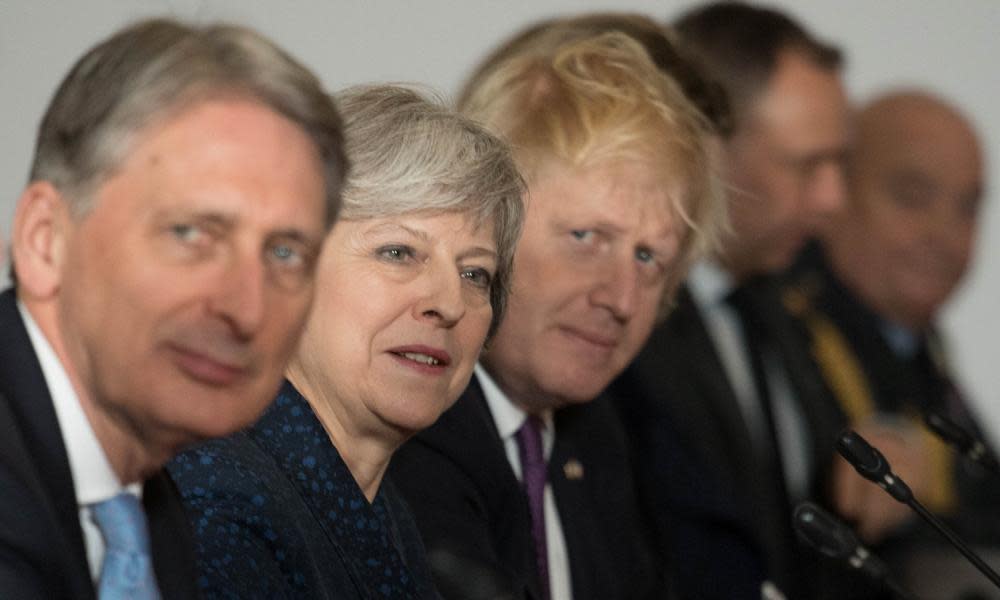Hammond dismisses Johnson's talk of post-Brexit NHS dividend

Economic confidence is suffering due to the UK’s impending withdrawal from the EU, Philip Hammond has said, as he pointedly knocked down demands from Boris Johnson for a “Brexit dividend” for the NHS, in a sign of growing divisions within the government.
In the wake of reports that Johnson intends to demand an extra £5bn injection for the health service at a meeting of the cabinet later on Tuesday, Hammond offered a withering response.
“Well, Mr Johnson is the foreign secretary,” the UK chancellor told reporters in Brussels. “I gave the health secretary [Jeremy Hunt] an extra £6bn in the recent budget and we will look at departmental allocations again at the spending review when that takes place.”
Allies of the foreign secretary have been briefing that Johnson has a “track record of winning” and would not relent on demands for £100m a week for the NHS, in recognition of the lower payments to Brussels that will be necessary in the future.
The chancellor, who is a keen advocate for keeping the UK closely aligned to EU rules and regulations in the hope of minimising economic disruption after the UK leaves the bloc, said that rather than reaping a Brexit dividend, the economy was suffering due to uncertainty over the future.
His comments came in response to the decision by the International Monetary Fund to downgrade its forecast for UK growth in 2019, the year when the UK leaves the EU, to 1.5%, against an earlier forecast of 1.6%.
It upgraded its forecasts for much of the rest of the G7 on the back of a strengthening global economy. Germany was upgraded from 1.5% to 2%.
Arriving in Brussels for a meeting of European finance ministers, Hammond said: “Because of the negotiations that are going on there is a degree of uncertainty about our future direction and arrangements for trading with our European partners and that is bound to have an impact on thinking about the economy.
“The sooner we can generate certainty the better and that’s why we are keen to build on the momentum that we got in December and get the negotiations moving forward now in a steady way so that we can see real progress over the course of the coming months.”
He also disclosed that while in Brussels and Davos, where he will visit with the prime minister later on Tuesday, the chancellor would be talking up the City of London’s role in the global economic system.
The EU has repeatedly said it will not offer the UK a continuation of “passporting rights”, which would allow the City’s financial services companies to do business across Europe as they do at present.
Hammond said he was concerned that progress made in December – when Brussels agreed that sufficient progress had been made on the opening issues of the financial settlement, the Irish border and citizens’ rights – was not lost in 2018.
He said: “I will take the opportunity to meet with colleagues to build on the momentum that we generated in December on the agreement of the completion of phase one discussions and progress to begin phase two discussions on Brexit.
“There will be lots of people at Davos and the message we will be taking is that Britain is open for business and we are keen to discuss with partners, both European and further afield, about our future relationship and Britain’s role in the global economy and in particular London’s role in the global financial economy.”

 Yahoo News
Yahoo News 
